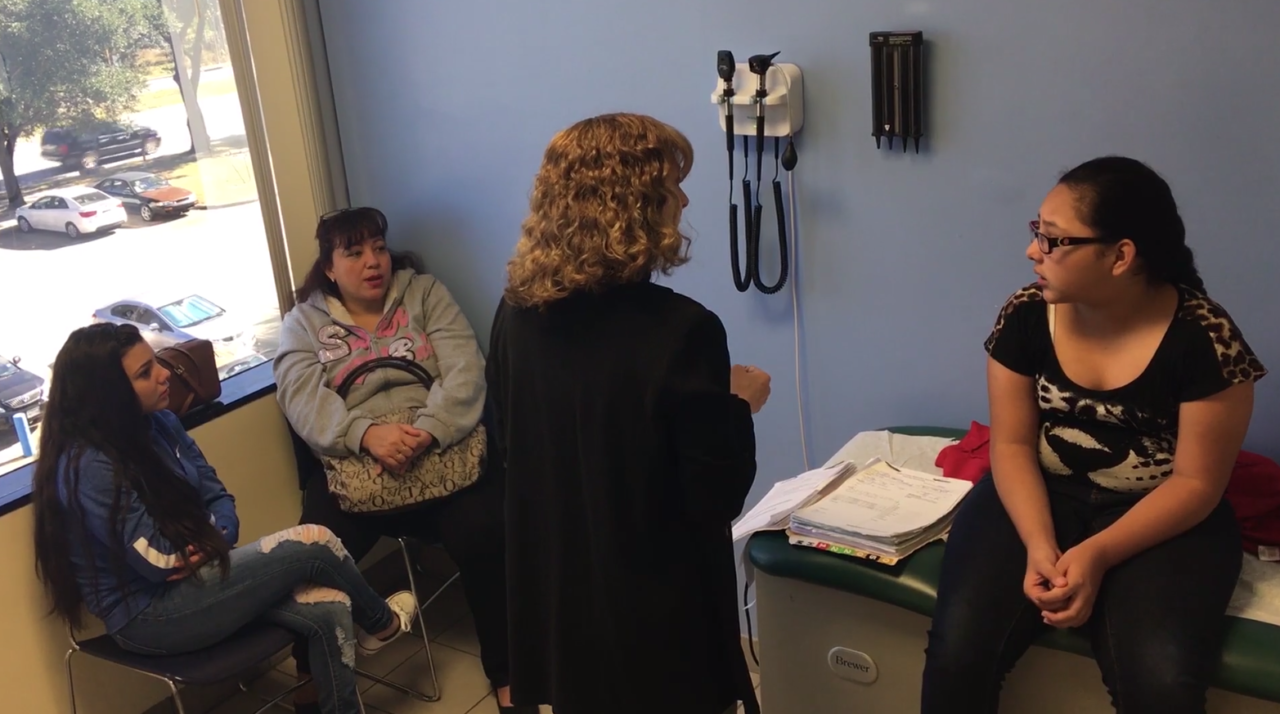

By Elena Marks
President and CEO
This opinion column originally appeared in the Houston Chronicle
Gloria is a San Antonio mom raising three kids. Two of her children have disabilities, so she’s not able to work more than a part-time job. She has chronic asthma but can’t afford to see a doctor because she can’t afford health insurance. So, Gloria has to go to the emergency room when she has a severe asthma attack.
Amber is a student at the University of Houston. She’s worked throughout the pandemic at a grocery store to help pay her tuition and has been constantly worried about getting her family sick with COVID-19. Balancing work and school means she doesn’t work enough hours to get health insurance benefits. So, Amber puts off going to the doctor for recurring pain.
Gloria and Amber aren’t eligible for subsidized health insurance through the Affordable Care Act marketplace because they make too little, and they aren’t eligible for Texas Medicaid because they make too much. Like more than one million Texans between the ages of 19 and 64, they fall into the coverage gap.
There’s a solution for Gloria and Amber: it’s called Medicaid expansion and Texas can’t afford to pass this up. When this opportunity was first presented to the Texas legislature in 2013, it was a new program, and cautious state leadership chose not to participate. Now, eight years later, the costs and benefits of Medicaid expansion are well known, as 38 states, including conservative states, have joined the program. Not one has exited; even in the face of built-in exit opportunities states like Indiana have re-upped. Dozens of studies show why.
Improved access and health outcomes
Health insurance coverage is the primary reason Americans can afford to access health care. Medicaid expansion would provide more than one million Texans with coverage, which translates to access. Access to health care translates to better health outcomes. Multiple studies have shown improvements in health outcomes for patients who obtained coverage through Medicaid expansion. This includes improvements for patients with diabetes and hypertension, higher rates of cancers screenings and self-reported improvements in mental and physical health. The increase in access to care due to Medicaid expansion has been greatest in rural areas.
Improved economics
Medicaid expansion did not crowd out other priorities in the budgets of expansion states. In some cases, the federal contribution resulted in savings to states in areas like behavioral health because the federal government assumed 90 percent of the costs. A recent analysis by renowned state economist economist Ray Perryman estimates that the fiscal benefits of Medicaid expansion to Texas in the next two years alone translate to $45.3 billion in gross product for the state. The increase in GDP is due to increases in health-related spending, reductions in uncompensated care and increases in productivity from reductions in morbidity and mortality. The new Health Coverage Policy Explorer developed by Texas 2036 shows that Medicaid expansion will cost Texas less than $2 per person per year and will bring $5.3 billion of our federal taxes back to Texas. As if this weren’t reason enough, the new American Rescue Plan Act provides $3 to $6 billion in additional funds to Texas over the next two years if we expand Medicaid. These funds could be used to shore up health and other infrastructure needs that have become apparent during the pandemic and recent freeze.
Improved health care sector
Medicaid expansion benefits health care providers by reducing the burden of charity care and uncompensated care costs. Because of our high rate of uninsured residents, Texas public and nonprofit hospitals provide more charity care as a percentage of operating expenses than those in all other states, and unless and until we bring more people into insurance coverage, this will remain the case. For rural hospitals, the stakes could not be higher as Texas has had more closures than any other state.
Perhaps most importantly, is the human cost of failing to act. As the CEO of a faith-based organization committed to helping the least of these, I look at this information and find it unacceptable that we can leave so many of our neighbors behind when we have the resources to address such a basic human need as access to health care. We have the means to make health coverage a reality for more than one million low-income Texans. Our state leaders hold the keys. How can we look Gloria and Amber in the eyes, knowing what we know, and say we just decided not to do anything about it?